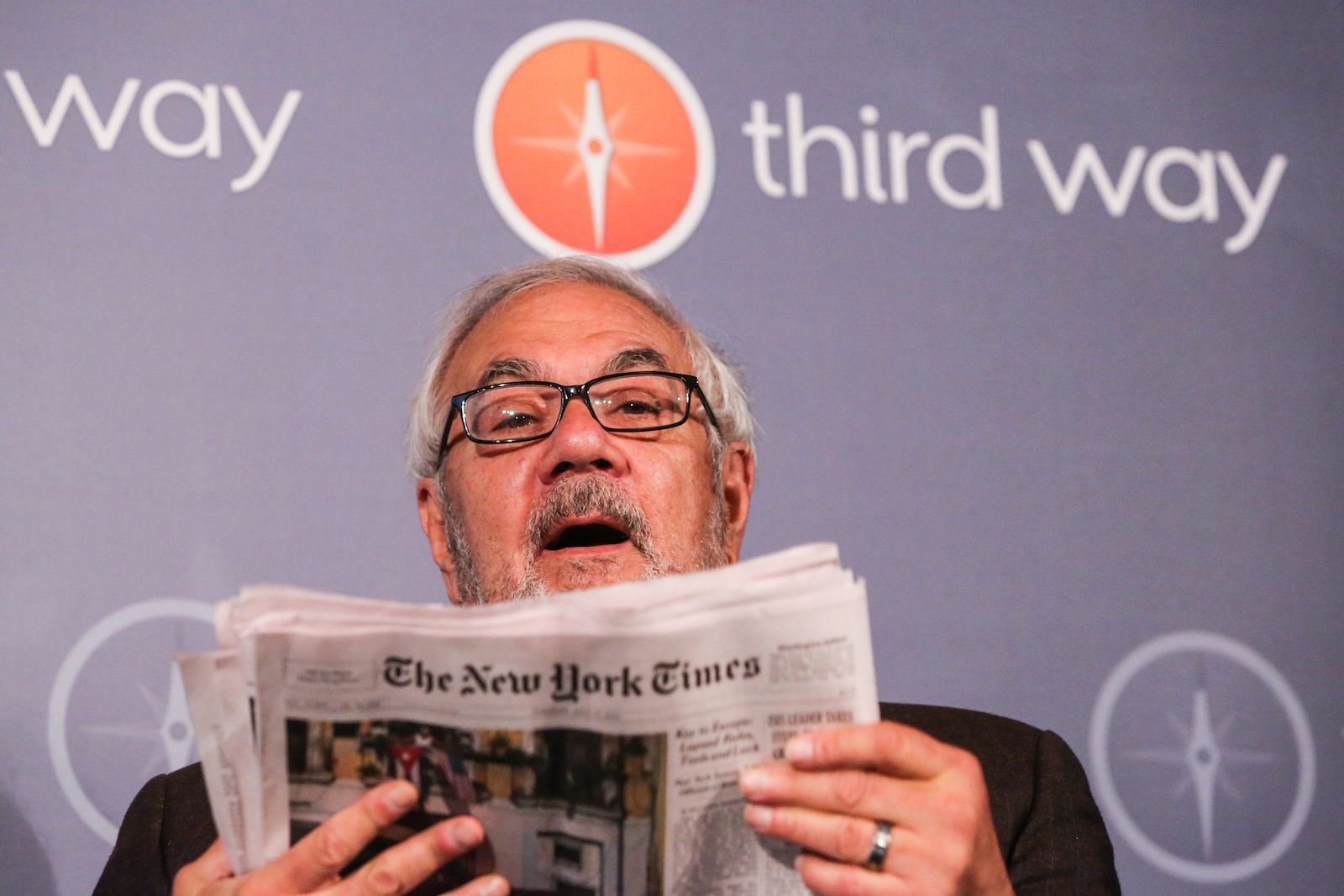
Politics
Short Memories, Broken Politics, and the Coming Recession
The stock markets are frothy — once again — and it feels a lot like 2008. Just six years ago the markets were partying like there was no tomorrow — ignoring the bubbles that had developed, having failed to learn lessons from the plethora of previous financial crises, and pretending that if they just kept saying everything was fine long enough, everything would indeed be just fine. Yet, after all that has happened, it appears that investors, the markets, voters, and Congress have learned little.
While Wall Street’s natural inclination is to cheer the partial repeal of Dodd-Frank (the result of an ‘add on’ to the trillion dollar government budget passed by Congress over the weekend), exactly the opposite should be the case. Surely, Wall Street should know that it is in its own, as well as, the collective, interest to have legal boundaries in place to prevent it from succumbing to its historical propensity toward greed and excess. A gradual erosion of the remainder of Dodd-Frank under a Republican-controlled Congress after the New Year now seems inevitable. How can that be in Wall Street’s, or the country’s, long-term interest?
Four basic ingredients were required to allow the Great Recession to occur: greed, lax risk management, inadequate regulatory enforcement, and short memories. Greed certainly hasn’t disappeared and, as is abundantly clear, people still have short memories.
Although risk management procedures and regulatory enforcement mechanisms have definitely improved, the propensity to water them down has gained momentum as time has passed. So the stage would appear to be set for a recurrence of the precursors that led to the Great Recession.
Then, as now, we are our own worst enemy, with all pieces of the puzzle playing their predefined role. The bankers remain greedy. Lobbyists are trying to find ways to water down rules restricting the freedom of movement of their constituents. Risk managers are busy trying to figure out how they can remain in compliance at the very edge of the new rules. And voters continue to elect lawmakers who have a vested interest in perpetuating the system. The result is a polity that is rotten to the core, and getting worse. It is just a matter to time until the self-interest of Washington and Wall Street help propel us into another recession.
According to the National Bureau of Economic Research, which tracks recessions on a monthly basis going back to 1854, we are already overdue for another recession. From 1854 to 1919, there were 16 economic cycles, the average recession lasted 22 months, and the average economic expansion was 27 months. From 1919 to 1945, there were 6 cycles, recessions lasted an average of 18 months and expansions for 35 months. And the period from 1945 to 2001 saw 10 cycles, recessions lasted an average 10 months, and expansions an average of 57 months. So recessions got shorter and expansion periods longer over time.
Since the third quarter of 2009, the U.S. economy has expanded for 20 of the past 22 quarters (60 months), and is poised to continue the trend well in to 2015. Given that the U.S. economy is once again the de facto engine of the global economy (given China’s slowdown), far outpacing Europe and most other developed economies, there would appear to be little reason to believe that two consecutive quarters of negative growth are in our near term future.
If we assume that 2015 will see at least 3, if not 4, quarters of positive growth, the most realistic prospect for the onset of a new recession will be in 2016, meaning that the current period of economic recovery will have lasted a minimum of 72 months. By post-War standards, by that time, the U.S. will have been overdue for another recession by two years. As things look now, it certainly appears possible, perhaps even probable, that a recession will either begin, or be well under way, in conjunction with the U.S. presidential election.
If so, both the Democrats and the Republicans will presumably be falling all over themselves to blame each other, pass the buck, and produce legislation aimed at reducing the pain on the American people, in an effort to demonstrate how guiltless and selfless they all are. In the process, they will no doubt end up adding in a significant way to the inexcusable size of the budget deficit, and digging us into an even deeper fiscal hole in the process.
If the Great Recession wasn’t enough to change the hearts and minds of the bankers, legislators, lobbyists and voters, I really don’t know what would be. We bear collective responsibility for perpetuating a terribly broken system. Each actor must play his part in order for the system to keep operating in this way. What we need are more brave politicians — like Elizabeth Warren – to stand up and speak the unvarnished truth. If someone as brave, honest and fearless as she were to become president, there is hope the vicious cycle can be broken. But don’t count on that. As Jack Nicholson said in A Few Good Men, we can’t handle the truth.

